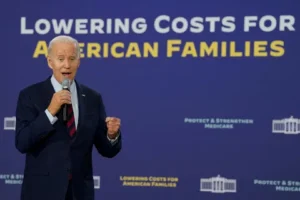The conclusion of the first round of Medicare drug price negotiations marks a significant milestone, though the final negotiated prices for the selected medications remain undisclosed. These prices, set to be revealed in early September, will come into effect in 2026. While the pharmaceutical industry continues to view these negotiations as a long-term threat to innovation and profits, there appears to be a sense of short-term stability among drugmakers based on recent earnings calls from key companies like Bristol Myers Squibb, Johnson & Johnson, and others.
Executives from major pharmaceutical companies have expressed varying degrees of confidence regarding the immediate impact of these negotiations. Bristol Myers Squibb CEO Christopher Boerner mentioned that the company has received the final price for its blood thinner Eliquis, shared with Pfizer, and is “increasingly confident” in navigating the impact. AbbVie CEO Robert Michael noted that the expected sales impact on its leukemia drug Imbruvica is included in financial forecasts, with AbbVie still expecting to meet its long-term outlook. Similarly, J&J Worldwide Chairman Jennifer Taubert expressed confidence in the company’s long-term growth despite new prices for its blood thinner Xarelto and psoriasis treatment Stelara.

However, Novartis CEO Vasant Narasimhan acknowledged that while the short-term impact on its drugs, such as the heart failure drug Entresto, might be manageable, the policy’s long-term effects are concerning. Narasimhan criticized the policy for its negative implications on innovation and patient care.
Despite the immediate stabilization, the pharmaceutical industry remains strongly opposed to Medicare drug price negotiations, labeling them as bad public policy. Executives like Boerner from Bristol Myers Squibb highlighted concerns about the long-term implications on innovation due to the Inflation Reduction Act (IRA). Legal challenges from companies like Merck and Novartis are ongoing, with similar claims from other industry players and trade groups being recently rejected.
The Medicare drug price negotiation authority, established under President Joe Biden’s Inflation Reduction Act, aims to make medications more affordable for older Americans. While the immediate concerns over the new Medicare drug prices have somewhat subsided, the pharmaceutical industry remains wary of the long-term impacts. The upcoming price disclosures in September will provide clearer insights into how these negotiations will shape the market and influence future strategies for drugmakers.


















